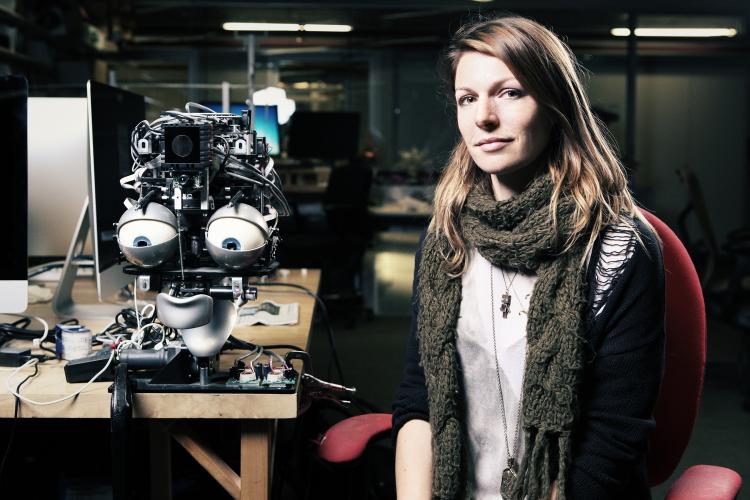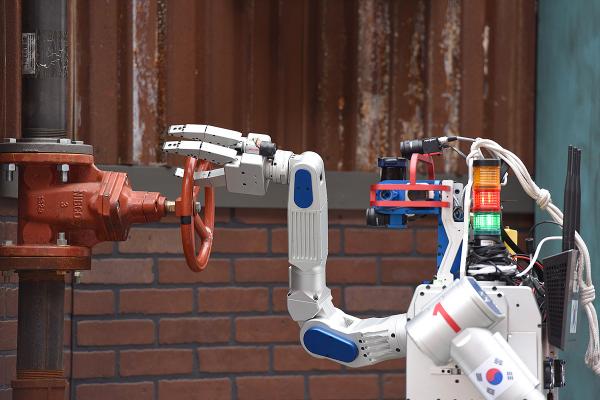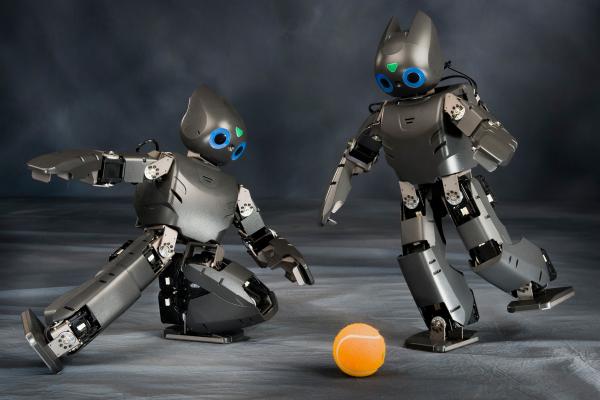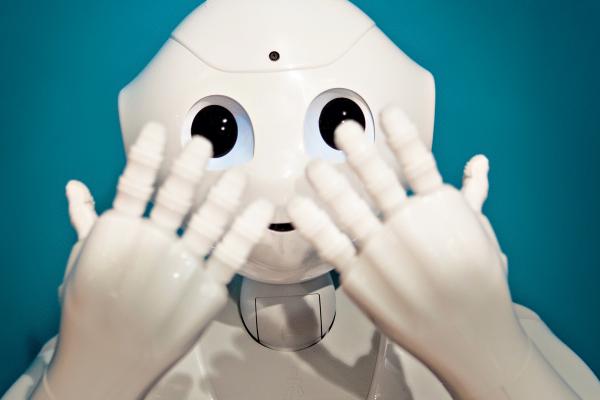Kate, how did you come to be researching in the field of robotics? Has the topic always been one that interested you?
Even as a child, I found robots very exciting. I studied law in Switzerland and initially accepted a legal position at MIT while doing my doctorate in 2011. In the last four years I have expanded my disciplinary horizons, so to speak, and now I’m increasingly studying robotics, psychology, and ethics.
You have been researching in the field of robot ethics for the past few years, what does a typical working day in the MIT Media Lab look like?
I don’t really have a typical working day, every day is different! At the moment I’m working on several projects. That could mean: meetings with colleagues, getting up early to carry out experiments, spending all night analyzing data or working on a paper or traveling to a conference. Unfortunately what I spend most time on is probably e-mail.
Pepper is a robot who reads emotions and can react to them. If you hang your head in front of Pepper, the robot tells a joke, dances or plays some music. This must lead you to create an almost emotional connection. Why do we anthropomorphize robots so much?
We have a general tendency to humanize animals and even non-living things. Social robots play with this tendency and attempt by means of movement, design and programming to amplify these sometimes unconscious projections.

Kate Darling (33) was born in America and moved to Switzerland at the age of nine. She grew up in Basel. She completed her law degree in the same city. Kate Darling did her PhD at ETH Zurich. Since 2011 she has worked and carried out research at the Massachusetts Institute of Technology MIT Media Lab. Robot ethics is her area of research – she is particularly interested in the development by humans of emotional connections to robots, and how these “social feelings” for machines will affect humans in the future. When not traveling around the world attending science conferences, she lectures in robot rights and intellectual property on the Internet at the elite universities of Yale, Harvard and Cambridge.
How is an emotional bond to a robot created – a machine consisting of nothing other than metal, plastic and electronics and fed with clever algorithms?
People are already capable of creating emotional connections to objects, such as cars or stuffed animals, for example. However, robots simply fall into another, more intensive category of these objects. We react strongly to the physical movement of the robot. If they are equipped with either characteristics or body parts that are typical of life forms, such as eyes for example, some people are quick to treat the robots like animals in certain situations.
Does it not heavily depend on the appearance of a robot whether you develop feelings?
Yes, appearance plays a big part. We even treat different animals differently depending on their external appearance. And people!
What about armed military robots? Are they a danger to humanity?
Like every other technology, it depends on how it’s used. We should certainly be considering the possibility of autonomous weapons systems. What worries me the most is the distance between decision makers and the consequences of their actions.
What might happen in the area of human-robot relationships in the near future?
I don’t believe that robots will replace interpersonal relationships in the near future. But I can well imagine that over time we will perceive certain robots in the same way as pets, and treat them accordingly.
And finally: Do you have a robot at home yourself?
Yes, a few! My favorite robots are my two Pleo dinosaurs, one is called Yochai and the other is Peter. Then there is a solar robot I built myself that walks around in an aquarium. His name is Herbert.




